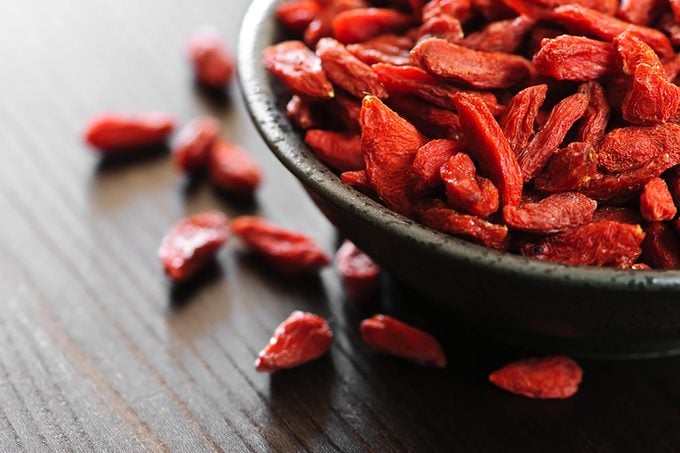12 Cancer-Fighting Superfoods You Should Be Eating Every Day
Updated: Jul. 28, 2017
Cancer is the number two killer in America, second only to heart disease. What you eat can lower your risk significantly.

A slew of research suggests that eating a nutritious diet rich in cancer-fighting fruit, vegetables, herbs, and spices could be key to keeping cancer at bay. But, “rather than thinking about foods that are ‘magic bullets’ and about a diet that protects against cancer, one should think about a diet that is good for health generally,” says Dr. Kabat, PhD, a senior epidemiologist at Albert Einstein College of Medicine/Montefiore Health System. “In this sense, a diet that contains lots of fruits and vegetables, as well as beans, nuts, seeds, and that is low on simple carbohydrates—sugars and starch—with small amounts of poultry, fish, and meat, is probably the best diet for overall health.” Adding the following 12 foods to your everyday eating is a good start. Meanwhile, here are 8 foods cancer docs try never to eat.
Cabbage, Broccoli, and Cauliflower
Vegetables in the cabbage family, also known as cole crops and cruciferous vegetables, contain indole-3-carbinol, a chemical that inhibits the growth of cancer cells. Broccoli may also ward off colon and rectal cancer, thanks to an enzyme called glucoraphanin that is especially abundant in broccoli sprouts.
Carrots and Sweet Potatoes
Both are rich in beta carotene, which is believed to hinder the growth of a long list of cancers, including lung, throat, stomach, and prostate.
Berries
Blueberries, strawberries, and raspberries are all high in antioxidants, which protect healthy cells from many cancers.
Tomatoes
It’s lycopene, a free radical-fighting antioxidant, which puts tomatoes on the list. Studies have found that lycopene, when consumed along with oil, wards off a number of cancers including pancreatic, breast, and prostate. Thanks to yet another antioxidant, vitamin c, tomatoes pack a double dose of powerful cancer-fighting punch.
Flax Seed
Rich in omega-3 fatty acids and antioxidants known as lignans, flax seed helps keep healthy cells from becoming cancerous. Omega-3s have been shown to be particularly effective in combating colon cancer, and provide numerous other health benefits as well, from improved brain function to decreased risk of heart disease.
Garlic, Onions, Leeks, and Chives
It’s a good thing most of us can’t imagine cooking without at least one of the allium vegetables. Not only do they boost our bodies’ immunity to cancer, they also help destroy cancerous cells. Research has linked consumption of allium vegetables, especially garlic, to a reduced risk of stomach, colon, and prostate cancers in particular.














